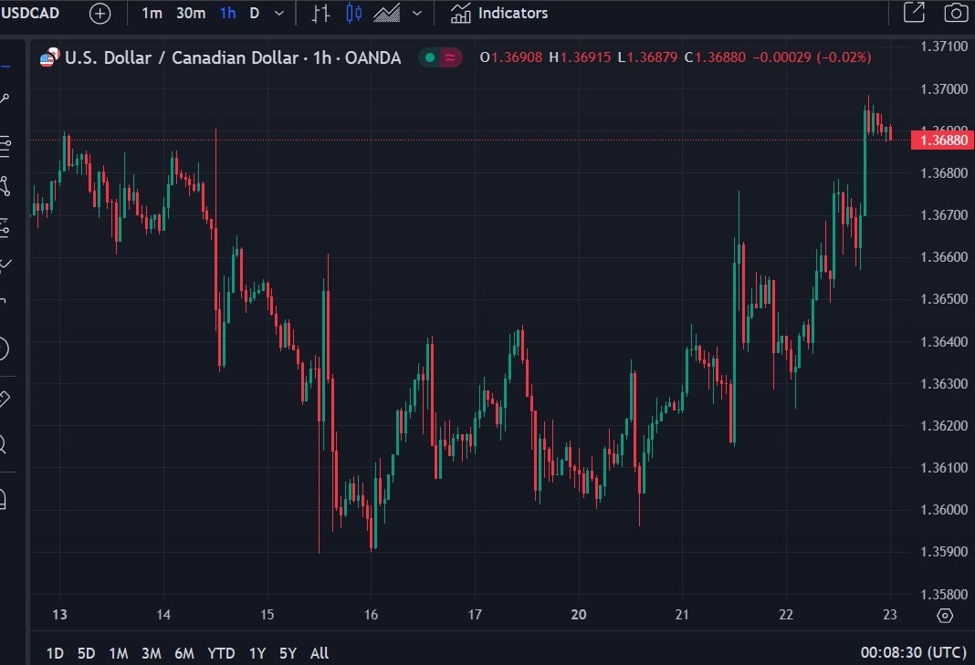Perplexity Vs. Google: A CEO's Perspective On The AI Browser Battle

Table of Contents
Perplexity AI: The Disruptive Challenger
Perplexity AI is rapidly making a name for itself as a disruptive force in the AI search engine market. Its unique approach sets it apart from established players like Google.
Focus on Conversational AI and Source Citation
- Perplexity's emphasis on conversational search: Unlike traditional keyword-based searches, Perplexity allows for natural language queries, mimicking human conversation. This fosters a more intuitive and engaging user experience.
- Its unique approach to citing sources: Perplexity prioritizes transparency by meticulously citing the sources used to generate its responses. This enhances the accuracy and trustworthiness of the information provided.
- Enhanced transparency and trustworthiness: The source citation feature directly addresses concerns about the reliability of AI-generated information. Users can easily verify the information's accuracy, building trust in the platform.
- Potential for superior user experience in complex queries: Perplexity's conversational capabilities shine when tackling complex informational needs, allowing users to refine their queries through dialogue, unlike the more linear approach of many traditional search engines.
Perplexity's conversational AI differs significantly from Google's. While Google provides a list of links, Perplexity delivers a synthesized answer directly, supported by its cited sources. This difference significantly impacts user experience, especially for those seeking quick, concise answers. The implications of source citation are profound; it fosters a higher level of trust and combats the spread of misinformation, a critical factor in the current information landscape. For instance, when researching a complex scientific topic, Perplexity's ability to provide cited sources allows users to delve deeper and verify the information independently.
Limitations and Challenges for Perplexity
- Smaller index size compared to Google: Perplexity's relatively smaller knowledge base compared to Google's vast index limits its coverage.
- Potential for bias in cited sources: While Perplexity cites sources, the potential for bias within those sources remains a concern, requiring ongoing monitoring and refinement of its algorithms.
- Dependence on external APIs: Perplexity relies on external APIs for some functionalities, creating potential vulnerabilities and dependencies.
- Scalability challenges: Handling a rapidly growing user base presents significant scalability challenges for Perplexity's infrastructure.
- Monetization strategy: Developing a sustainable monetization strategy without compromising user experience is a key challenge for Perplexity's long-term viability.
Perplexity faces significant hurdles. Its smaller index size means it may not cover as much information as Google. The potential for bias in cited sources necessitates careful curation and algorithmic improvements. Furthermore, its reliance on external APIs introduces points of failure and potential cost increases. Scaling its infrastructure to meet potential future demand, while simultaneously establishing a robust monetization model, will be vital for its continued success. Comparing its infrastructure to Google's highlights a significant difference in scale and resources.
Google Search: The Established Giant
Google's dominance in the search engine market is undeniable, built on years of innovation and vast resources.
Google's Strengths and Market Dominance
- Extensive index size and comprehensive data coverage: Google boasts a massive index, providing unparalleled breadth and depth of information.
- Established user base and brand recognition: Google's brand enjoys widespread recognition and trust, translating to a massive, loyal user base.
- Sophisticated algorithms and machine learning: Google's advanced algorithms and machine learning capabilities ensure highly relevant and personalized search results.
- Integration with other Google services (Gmail, Maps, etc.): Seamless integration with other Google services enhances user convenience and creates a cohesive ecosystem.
- Advanced advertising capabilities: Google's sophisticated advertising platform generates substantial revenue, fueling further innovation and development.
Google's vast data resources underpin its search dominance. Its algorithms, honed over decades, deliver highly relevant results, attracting and retaining a massive user base. This established market position gives Google a significant advantage. Its integration with other services enhances user experience and creates a powerful network effect. The advanced advertising capabilities ensure its financial sustainability, providing resources for continued development.
Google's Challenges in the AI Browser Race
- Need to adapt to the changing landscape of conversational AI: Google must adapt its search technology to effectively compete with the conversational AI approach adopted by Perplexity and other emerging players.
- Maintaining user trust amid concerns about data privacy and manipulation: Growing concerns about data privacy and potential algorithmic manipulation pose significant challenges to maintaining user trust.
- Competition from innovative players like Perplexity: The emergence of innovative competitors like Perplexity necessitates a strong response to maintain market leadership.
- Balancing monetization with user experience: Google needs to carefully balance its revenue generation strategies with the need to provide a positive and valuable user experience.
Google's response to the rise of conversational AI will be critical for its continued success. Addressing user concerns regarding data privacy and algorithmic bias is paramount to maintaining trust. The competition from companies like Perplexity requires strategic adaptation and innovation to retain its market dominance. Balancing monetization with user experience will be a constant challenge requiring careful consideration.
The Future of the AI Browser Landscape: A CEO's Prediction
The future of AI browser technology is dynamic and full of possibilities.
Potential for Coexistence and Collaboration
- Opportunities for strategic partnerships: Strategic partnerships between established players like Google and innovative newcomers like Perplexity could lead to mutually beneficial outcomes.
- Potential for complementary services: Both companies could offer complementary services, catering to different user needs and preferences.
- Market segmentation and niche specialization: Market segmentation could allow for both Google and Perplexity to thrive, each focusing on specific niche markets.
The "Perplexity vs. Google" battle is not necessarily a zero-sum game. Coexistence and even collaboration are possible. Strategic partnerships could leverage the strengths of both companies, leading to innovative solutions that benefit users. Different market segments could support both players, with each focusing on specific user needs. Acquisitions are also a possibility, with Google potentially acquiring Perplexity to incorporate its innovative technology.
The Importance of Innovation and User Experience
- The key factors influencing user adoption: Ease of use, accuracy of information, and trust are key factors driving user adoption of AI browsers.
- The role of user feedback in shaping future AI browser development: User feedback is crucial for continuous improvement and adaptation to evolving user needs.
- The need for constant innovation and improvement: The AI browser landscape is constantly evolving, requiring ongoing innovation to remain competitive.
The ultimate success of any AI browser hinges on providing a seamless and intuitive user experience. Constant innovation, driven by user feedback, is essential for staying ahead in this dynamic market. Long-term success requires a commitment to providing accurate, reliable, and user-friendly solutions.
Conclusion
The "Perplexity vs. Google" battle is not a zero-sum game. While Google holds significant advantages due to its scale and established user base, Perplexity’s innovative approach to conversational AI and source citation presents a compelling alternative. The future will likely see both companies evolving and adapting, with user experience and continuous innovation playing crucial roles in determining the ultimate victor. To stay ahead in this dynamic market, CEOs must prioritize investment in AI development and focus on providing superior user experiences. The ongoing competition between Perplexity and Google will shape the future of AI browsers, offering exciting opportunities and challenges for years to come. Stay informed about the latest developments in the Perplexity vs. Google AI browser battle.

Featured Posts
-
 Bank Of Canada Rate Cuts On The Horizon Grim Retail Sales Point To Action
Apr 28, 2025
Bank Of Canada Rate Cuts On The Horizon Grim Retail Sales Point To Action
Apr 28, 2025 -
 Abwzby Tstdyf Mntda Rayda Llabtkar Fy Tb Alhyat Alshyt Almdydt
Apr 28, 2025
Abwzby Tstdyf Mntda Rayda Llabtkar Fy Tb Alhyat Alshyt Almdydt
Apr 28, 2025 -
 Boston Red Sox Coras Lineup Decisions For Doubleheader
Apr 28, 2025
Boston Red Sox Coras Lineup Decisions For Doubleheader
Apr 28, 2025 -
 Mlb Red Sox Blue Jays Game Preview Lineups Buehlers Start And Player Returns
Apr 28, 2025
Mlb Red Sox Blue Jays Game Preview Lineups Buehlers Start And Player Returns
Apr 28, 2025 -
 The Current State Of Gpu Pricing An Analysis
Apr 28, 2025
The Current State Of Gpu Pricing An Analysis
Apr 28, 2025
